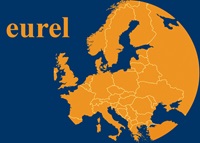This study explores the interplay between religion and populist radical right discourse across seven European contexts—specifically studying Brothers of Italy, VOX (Spain), Alternative für Deutschland (AfD), Sweden Democrats, Slovak National Party (SNS), Fidesz (Hungary), and Law and Justice (PiS, Poland)—during the period between the 2019 and 2024 European Parliament elections. The analysis utilizes two methodological frameworks: a) the “Essex school” paradigm (Laclau and Mouffe 1985), which views discourse as encompassing not only texts and speeches but also cultural norms, social practices, political processes, and public policy agendas (Howarth & Stavrakakis 2000; Stavrakakis 2024); and b) Ostiguy's (2017) socio-cultural approach to populism, emphasizing the “high–low” sociocultural dimension through performance, language, gestures, ways of dressing, etc.. Our research sheds light on whether and how these parties conceptualize Christianity and use the religious issue agenda as a crucial boundary marker to delineate the sovereign “people” from “secular Europeanized elites”. Overall, we confirm the literature, showing that while the role of religion varies among these parties, it often intersects with certain elements, such as anti-immigration stances, Islamophobia, traditionalism, and Euroscepticism to generate a cohesive, exclusionary narrative that often acquires a populist profile. Drawing on data from their official websites, our findings indicate that religion operates not only as a moral framework but also as a strategic tool to legitimize nationalist policies and marginalize perceived outsiders—both ethnically and ideologically. The parties studied frequently invoke the notion of a Christian heritage under threat from globalization, migration, and the detached elites in Brussels. In addition, and in line with Ostiguy's conceptualization, these parties articulate “low” cultural and discursive styles through emotive appeals, direct antagonism toward political opponents, and the dramatization of existential threats to the national or cultural community. However, one of the key results emerging from our study is that not all populist parties commonly categorized as “religious populist”- either as “civilizationist” (Brubaker 2017) or “devout and conservative” (Hedetoft 2020)- fit neatly into the paradigm of “religious populism” when viewed through Ostiguy's model. Contrary to the literature, we argue that if explored through the lenses of the socio-cultural approach, religion has a minor importance or merely exists either as a propaganda instrument or a value frame for most of the parties under examination. In brief, except for some references in the party texts or its employment in certain instances by the party leadership, religion does not seem to be very much present in terms of public behavior, performativity and rhetoric. To conclude, these parties may be “populist” –in addition to “nationalist”–, but not “religious populist”. By illuminating these nuances, this research advances our understanding of how religion can be instrumentalized in varying degrees within nationalist and populist politics to reinforce cultural boundaries, galvanize voter sentiments, and shape contemporary European political landscapes.

 PDF version
PDF version
